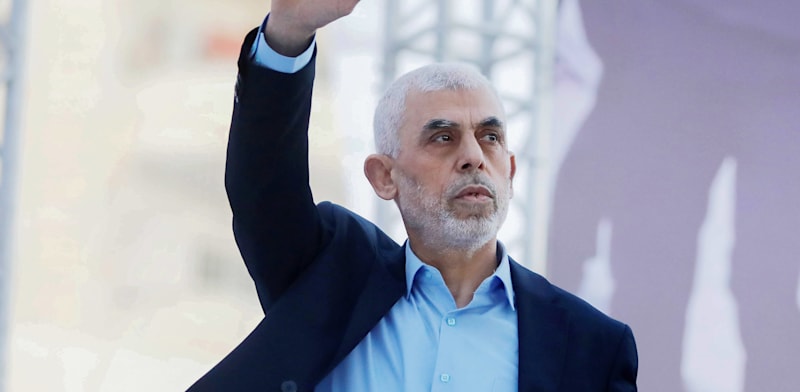The shekel has been gaining strongly this morning after the IDF confirmed last night that it had killed Hamas leader Yahya Sinwar. In inter-bank trading the shekel-dollar rate is 1.40% lower at NIS 3.71/$ and the shekel-euro rate is 1.77% lower at NIS 4.023/€.
The main question in the wake of the death of Sinwar is whether it will lead to rapid diplomatic progress or the fighting will continue. Amid all this uncertainty, economists are trying to understand the significance of this latest twist in the conflict and if the end of the war is any nearer, or whether it is just one more milestone in a protracted war.
Mizrahi Tefahot Bank chief economist Ronen Menachem tells “Globes” that there is no certainty on how events will impact the forex market and stock exchange. He says, “Everything depends on the question of whether the development will be considered as one that distances a political solution in general, and the issue of the hostages in particular, or whether it will bring it nearer.”
“If the elimination has no political follow-up, the positive effect may fade over time.”
Menachem explains that it is likely that the reaction in the foreign exchange market will be positive at first, but after that it depends on this question. The stock markets, according to him, will depend on “The continuation of the political process, the reaction of Hamas, etc. If the elimination has no political follow-up, the positive effect may fade over time. Also, the northern front has recently become a separate issue from the southern one, and the events there also have a strong effect on the market depending on what happens there.”
Bank Hapoalim chief financial markets strategist Modi Shafrir agrees and thinks that the market response will be positive. He says, “I suppose Sinwar’s elimination signals to the markets that the chances of a hostage deal are closer than ever, and it may be done faster.” According to him, the hostage deal means the end of the war, therefore “This will be a very positive sign for the markets and also for the strengthening against foreign currencies.”
Will the shekel eventually return to NIS 3/$
It appears that hopes following the death of the Hamas leader bring with them an expectation of the strengthening of the shekel and the Tel Aviv Stock Exchange (TASE). In general, analysts expect a significant improvement in the state of the Israeli economy.
Since the start of 2023, the Bank of Israel has calculated that if it had not been for the war and before that the social-political crisis, the shekel could have even reached NIS 3/$. However, it is not clear whether this will happen after the war.
RELATED ARTICLES
Menachem says that the shekel reflects in its value “The security situation and also other issues such as the growing fiscal deficit, inflation which is still higher than the target range, the political environment and the general uncertainty. It weakened even before the war broke out.”
This means that without improvement on these issues, there will be no significant room for maneuver for appreciation of the shekel, and therefore its ability to strengthen will remain limited. However, Menachem, “In a scenario of a political breakthrough, such as the US-Saudi arrangement, the shekel is expected to register a considerable strengthening.”
Is an interest rate cut finally on the horizon?
An easing in the security situation can certainly lead to a decrease in inflation and even a lowering of interest rates by the Bank of Israel. A large part of the increase in inflation during the war has been due to the effects of the fighting in the south and the north, which caused the price of fruits and vegetables to rise and the price of flights to soar. Also, the lack of Palestinian workers has hurt the construction sector, and the number of houses built during the war years dropped.
A certain stability in the markets together with a decrease in inflation will allow the Bank of Israel to cut the interest rate, after over the last year it has focused mainly on financial stability and the fear of inflation rising remaining above the 3% upper limit of the stability range. Top bankers had expected at least one interest rate cut this year, and in early forecasts they even predicted cuts that would bring the rate down from 4.5% to 4%. These forecasts evaporated as the fighting intensified and the risks in the north began to materialize. In any case, the markets will have to carefully examine the next steps in the war, and determine whether Israel is headed for a long-term calm, or whether the fighting will continue in the near future.
Published by Globes, Israel business news – en.globes.co.il – on October 18, 2024.
© Copyright of Globes Publisher Itonut (1983) Ltd., 2024.







